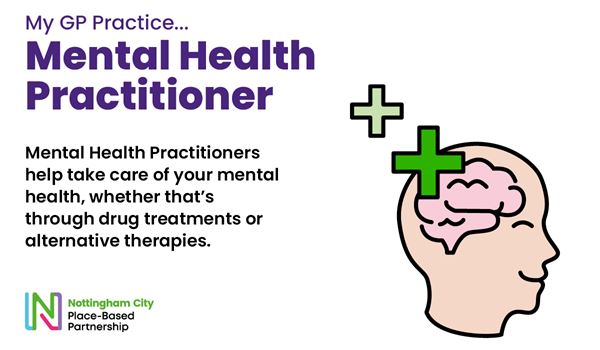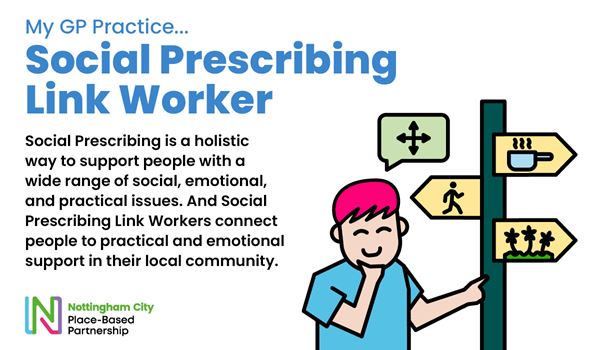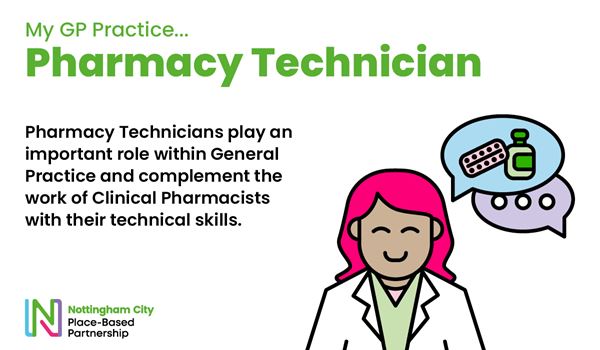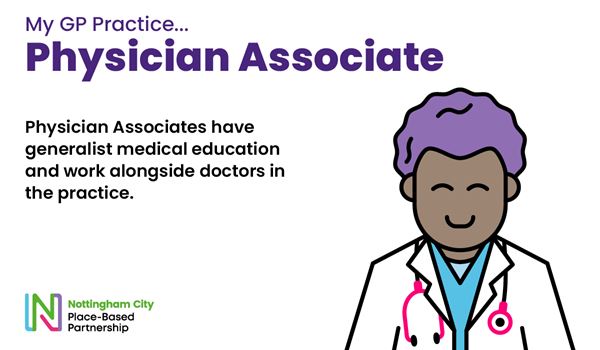Additional roles have been introduced across Nottingham city to support Primary Care Networks (PCNs) and GP practices. This follows the guidance set out in NHS Englands Long Term Plan. From a patient point of view it means you may be offerend an appointment with a clinican other than a nurse or doctor when booking at your GP practice. From a practice point of view there is more clinical support available for patients. The additional roles in each PCN will vary based on the health and care needs of the local populations (population health management).
NCGPA is lead employer for a number of the additional roles across Nottingham city. These include:
- Social Prescribing Link Worker
- Clinical Pharmacists
- Pharmacy Technicians
- Health & Wellbeing Coaches
- Physician Associates
- First Contact Physiotherapists
- Occupational Therapists
- Mental Health Practioners
Find out more about the roles active in Nottingham city below. Click on the image next to the information to be directed to a video about each role from our partners at the Nottingham City Place-Based Partnership.
Social Prescribing Link Workers
Social prescribing starts with a conversation.
It may be a conversation with a GP or with someone else from the practice team.
Link workers support people with the social, emotional, or practical issues they may be experiencing.
This could range from social isolation, housing issues, problems finding employment, and much more.
Clinical Pharmacists
Clinical pharmacists work with patients at GP practices to assess and treat patients using their expert knowledge of medicine.
Typically clinical pharmacists take responsibility for patients with chronic diseases, the elderly, people in care homes, and those with multiple conditions.
They perform reviews with patients to ensure the prescribe medication is working correctly for them.
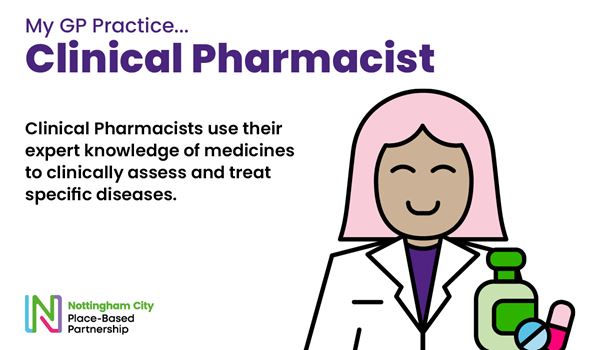
Health and Wellbeing Coaches
Health and Wellbeing Coaches (HWBCs) support, educate, and motivte people to improve their mental and phyical wellbeing themselves.
They work to improve people’s confidence and motivation in order to improve their lifestyle and live healthier, happier lives.
HWBCs coaches usually work with people who are living with long-term physical or mental health conditions to help them manage their illnesses.
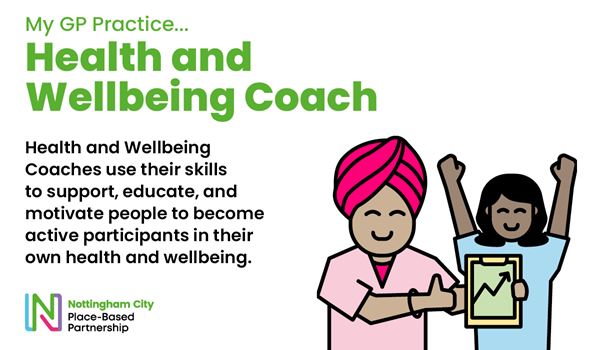
Physician Associates
Physician associates (PAs) are healthcare professionals who work alongside doctors to provide the best medical care possible.
PAs have a broad medical training and education which allows them help patients with a wide variety of health problems, under the supervision of experienced doctors.
First Contact Physiotherapists
First contact physiotherapists (FCPs) are qualified experts in diagnosing and treating musculoskeletal conditions.
Musculoskeletal conditions relate to issues around joint, neck, and back pain such as osteoporosis and arthritis.
Patients will be referred to a FCP from their GP, who will be able to treat and discharge the patient themselves.
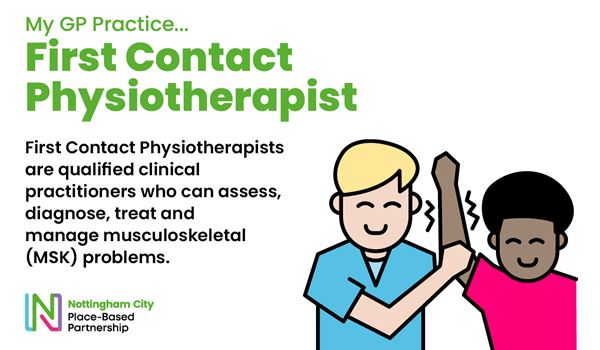
Occupational Therapists
Occupational therapists (OTs) support people with problems resulting from physical, mental, social, or development difficulties.
OTs provide interventions that help people find ways to continue with everyday activities that are important to them.
This could involve learning new ways to do things or making changes to their environment to make things easier.
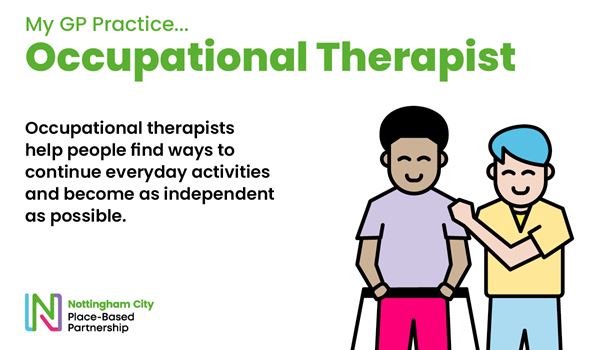
Mental Health Practitioners
Mental health practitioners support adults who need help with their mental health, beyond local talking therapies
They can help people struggling with their mental health by creating treatment programmes, signposting to other services, and generally supporting them on their journey to better mental wellbeing.
